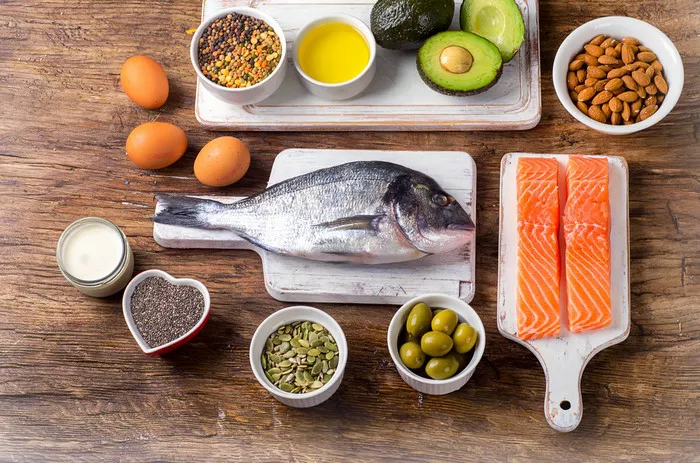Breastfeeding is an intimate bond between mother and child, providing vital nutrients and immune support crucial for the infant’s growth and development. Among the essential components of breast milk, fat plays a significant role in fueling the baby’s energy needs and promoting healthy weight gain. For mothers seeking to enrich the fat content of their breast milk, incorporating certain nutrient-dense foods into their diet can be immensely beneficial. In this article, we delve into the science behind breast milk fat production and highlight ten of the best foods known to enhance its quality.
1. Avocado:
Dubbed nature’s butter, avocado is a powerhouse of healthy fats, primarily monounsaturated fats, which are vital for brain development in infants. Additionally, avocados are rich in potassium, vitamin E, and folate, contributing to overall maternal health and well-being.
2. Salmon:
As a prime source of omega-3 fatty acids, salmon stands out as an excellent choice for nursing mothers. DHA (docosahexaenoic acid), a type of omega-3 found abundantly in salmon, plays a crucial role in the development of the baby’s nervous system and cognitive function.
3. Flaxseeds:
These tiny seeds pack a nutritional punch, boasting high levels of alpha-linolenic acid (ALA), a plant-based omega-3 fatty acid. Incorporating ground flaxseeds into meals or snacks can help increase breast milk fat content while also providing a good source of dietary fiber.
4. Coconut Oil:
Rich in medium-chain triglycerides (MCTs), coconut oil is easily metabolized by the body and can support milk production and fat content. Moreover, its antimicrobial properties may benefit both mother and baby by enhancing immune function.
5. Nuts and Seeds:
Almonds, walnuts, and sunflower seeds are brimming with healthy fats, protein, and essential nutrients like vitamin E and zinc. Including a variety of nuts and seeds in the diet can promote overall maternal health and contribute to the richness of breast milk.
6. Oats:
A staple in many breastfeeding diets, oats are not only a hearty breakfast option but also a source of beta-glucan, a type of soluble fiber that may help increase prolactin levels, thus supporting milk production. Furthermore, oats are a complex carbohydrate that provides sustained energy for lactating mothers.
7. Greek Yogurt:
High in protein and calcium, Greek yogurt is a versatile addition to the breastfeeding diet. Opting for full-fat varieties can further boost the fat content of breast milk while ensuring adequate intake of essential nutrients.
8. Eggs:
As a complete protein source, eggs contain essential amino acids necessary for the baby’s growth and development. The yolks, in particular, are rich in choline, a nutrient crucial for brain health, making them a valuable addition to the breastfeeding mother’s diet.
9. Dark Leafy Greens:
Vegetables like spinach, kale, and Swiss chard are nutrient powerhouses, providing an array of vitamins, minerals, and antioxidants. Their high vitamin A and vitamin K content can benefit both mother and baby while supporting optimal lactation.
10. Fatty Fish:
Beyond salmon, other fatty fish such as mackerel, sardines, and trout are excellent sources of omega-3 fatty acids and protein. Including a variety of fatty fish in the diet can help diversify nutrient intake and contribute to the richness of breast milk.
In addition to incorporating these foods into their diet, breastfeeding mothers should focus on staying well-hydrated and maintaining a balanced, nutrient-rich eating pattern. Adequate hydration is essential for milk production, while a varied diet ensures a broad spectrum of nutrients for both mother and baby. Moreover, listening to hunger and fullness cues, practicing mindful eating, and seeking support from healthcare providers or lactation consultants can further optimize breastfeeding success.
It’s important to note that individual dietary needs may vary, and some foods or dietary patterns may cause sensitivities or allergies in infants. Therefore, it’s advisable for nursing mothers to monitor their baby’s reactions to any new foods introduced into their diet and consult with a healthcare professional if concerns arise.
In conclusion, by incorporating nutrient-rich foods like avocado, salmon, flaxseeds, and others into their diet, breastfeeding mothers can support the production of high-quality, nutrient-dense breast milk. Prioritizing a well-balanced diet, adequate hydration, and self-care practices can empower mothers to nourish their infants optimally during this critical stage of development.


